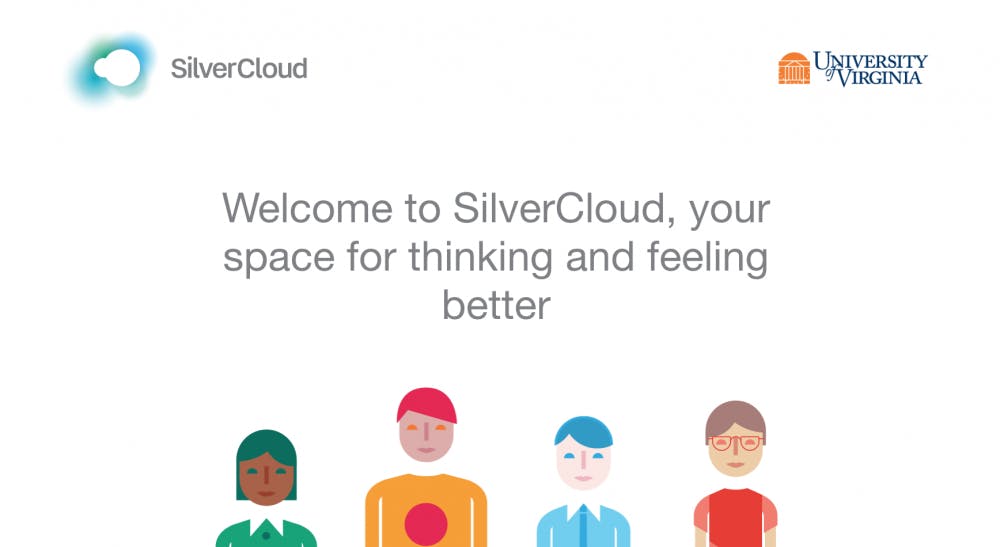The University’s Counseling and Psychological Services recently launched a new online cognitive behavior therapy program called SilverCloud. Through SilverCloud, CAPS hopes to help more students cope with stress, anxiety and depression.
SilverCloud, which is also used at other universities such as the College of William and Mary, the University of Wisconsin-Madison and Middlebury College located in Vermont, is designed for students experiencing mild to moderate depression or anxiety who would like to learn to cope with it, according to CAPS Director Nicole Ruzek.
The interface offers three programs for each of the aforementioned issues, and each program consists of seven to eight modules. The SilverCloud website states that “each module contains text, video and audio clips as well as interactive and engaging activities.”
This new program is an online form of CBT, a technique used by many psychiatrists in traditional in-person therapy. According to the American Psychological Association, this form of therapy is based on the ideas that both “faulty or unhelpful” thoughts and learned behaviors are responsible for psychological problems. The APA also said that CBT aims to allow the patient to develop into their own therapist, learning and practicing coping skills both in and out of therapy sessions.
Ruzek said that the largest difference between SilverCloud and traditional CBT therapy is the aspect of personalization.
“Obviously, when you're meeting with a therapist, you're developing a relationship with that person,” Ruzek said. “And you get more specialized feedback.”
What SilverCloud lacks in personalization, it compensates with immediacy and accessibility. The programs are available 24/7, which not only allows students to immediately learn coping strategies, but also to “practice skills on a more regular basis,” said Ruzek.
“Online mental health is becoming more popular, and obviously with students' busy lives, I think it's a really good … way to address some issues,” Ruzek said.
However, Ruzek said that one of the largest factors contributing to the launch was the recent increase in demand for CAPS’ in-person services. Since students have to wait between making an appointment and actually meeting a counselor, SilverCloud can provide them therapeutic resources to work with in the meantime.
Ruzek said the majority of users who have rated the program agree that it has helped them.
“One feature that a lot of students have indicated that they like is [that] there's a journaling aspect,” Ruzek said.
SilverCloud at the University currently has 212 users — more than half of CAPS’ goal of having 400 by the end of this academic year. CAPS is considering expanding the program by adding SilverCloud’s body image module, to promote a positive body image and self-esteem, and activating a supporter feature, where students are assigned an individual who would provide them with feedback throughout the program.
Members of the University community had differing thoughts on the program.
“It is essential to consider alternate ways of delivering mental health care that can reach more people,” said Psychology Prof. Bethany Teachman, who is also the director of clinical training and the director of diversity and inclusion in the psychology department. “Technology holds considerable promise to help address the large treatment gap.”
However, second-year College student Scarlet Omais expressed some concerns.
“I think it's great that UVa is offering such a service for free ... however, I'm a little concerned about privacy,” Omais said in an email to The Cavalier Daily. “The site says everything is ‘completely private’, but in the same breath admits it collects, stores, and processes all the data you give.”
Other students expressed the advantages of both in-person and online approaches.
“It is good for people who may be introverted or not comfortable ... talking about themselves,” second-year Engineering student Madison Flynn said. “However, I value being able to meet and talk to someone in person since I can make a personal connection with my psychologist.”
According to second-year Engineering student Megan Reddy, however, in-person and online therapy could ultimately be equally effective, depending on the preferences of the individual receiving treatment.
If you are experiencing feelings of anxiety or depression, you can call CAPS at (434) 924-5556 for immediate support.





